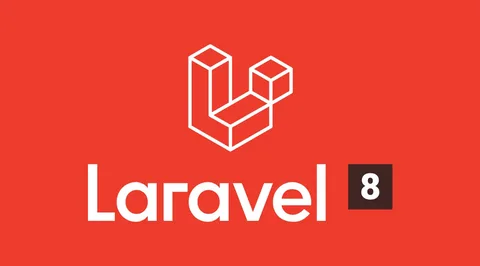In the ever-evolving landscape of web development, choosing the right framework can make all the difference in delivering a successful application. CakePHP, a robust and versatile framework for PHP development, is particularly favored for its rapid application development capabilities and clean coding standards. However, hiring the right CakePHP developer is crucial to fully leverage these benefits. This guide will explore the best routes to take when hiring CakePHP developers, ensuring that you find the right talent for your project.
Understanding CakePHP and Its Benefits
Before diving into the hiring process, it’s essential to understand what makes CakePHP a popular choice for developers:
- Rapid Development: CakePHP’s scaffolding features allow developers to create prototypes quickly, speeding up the development process.
- Convention over Configuration: CakePHP follows this principle, enabling developers to build applications with minimal setup and configuration, which enhances productivity.
- Built-in Features: CakePHP comes with a range of built-in tools and functionalities, such as authentication, session management, and validation, which streamline development.
- Strong Community Support: A large community means plenty of resources, plugins, and documentation, making it easier for developers to find solutions to common challenges.
With these advantages in mind, the next step is to explore the best methods for hiring CakePHP developers.
1. Define Your Project Requirements
Before starting your search for Hire CakePHP Developer, it’s vital to clearly define your project requirements:
- Project Scope: Outline the features and functionalities you need. Are you building a simple website or a complex web application?
- Budget: Determine your budget for hiring developers. This will help narrow down your options and ensure you find a developer that fits within your financial constraints.
- Timeline: Establish a timeline for your project. When do you need the developer to start, and what are the critical deadlines?
Having a well-defined project scope will help you articulate your needs to potential candidates and ensure you find someone who can meet those requirements.
2. Identify the Right Platforms for Hiring
Finding the right platform to hire CakePHP developers is crucial. Here are some of the best routes to consider:
Freelance Platforms
- Upwork: This platform allows you to post your project and receive bids from freelancers. You can review their profiles, ratings, and past work to find a suitable candidate.
- Freelancer: Similar to Upwork, Freelancer lets you post job listings and get bids from various developers, making it easier to compare options.
- Toptal: Toptal is known for providing top-tier talent. They have a rigorous screening process, ensuring you hire experienced CakePHP developers.
Job Boards
- LinkedIn: Use LinkedIn to post job listings and connect with potential candidates. The platform’s filtering options can help you target candidates with specific skills and experience.
- Indeed: This job board allows you to post detailed job descriptions and browse resumes of candidates actively looking for positions.
- Glassdoor: Glassdoor offers job postings alongside company reviews, which can help you attract developers who align with your company culture.
Specialized Communities
- CakePHP Official Community: Engage with developers in the CakePHP community forums or mailing lists. You can often find passionate developers who are eager to contribute to projects.
- GitHub: Browse repositories related to CakePHP to find developers who have actively contributed to projects. Reviewing their code can give you insight into their capabilities.
3. Create an Engaging Job Description
Once you have identified where to post your job, the next step is to create a compelling job description that attracts qualified candidates. Here are key elements to include:
- Job Title: Clearly state that you are hiring a CakePHP developer.
- Project Overview: Provide a brief description of your project, its goals, and why it’s exciting.
- Key Responsibilities: List the primary tasks the developer will be responsible for, such as coding, debugging, and collaborating with the team.
- Required Skills: Outline the necessary technical skills, such as proficiency in PHP, experience with CakePHP, knowledge of front-end technologies (HTML, CSS, JavaScript), and familiarity with database management systems (MySQL).
- Soft Skills: Highlight the importance of communication, teamwork, and problem-solving abilities.
- Working Conditions: Specify if the position is remote, on-site, or hybrid, and include any information about your company culture.
A well-crafted job description will help attract the right candidates who understand your needs and are excited about the opportunity.
4. Assess Technical Skills
When you begin to receive applications, it’s crucial to assess candidates’ technical skills effectively. Here are some strategies:
Technical Interviews
Conduct technical interviews to evaluate their knowledge of CakePHP and related technologies. Ask questions that cover:
- Core Concepts: Inquire about CakePHP features such as MVC architecture, routing, and database interactions.
- Problem-Solving: Present real-world scenarios or coding challenges to assess their problem-solving skills.
- Code Review: Ask candidates to explain a piece of code they’ve written in the past. This can provide insight into their coding style and thought process.
Coding Tests
Consider using coding platforms like HackerRank or Codility to conduct standardized coding assessments. This allows you to objectively evaluate the candidates’ coding abilities.
5. Evaluate Portfolios and References
Review the portfolios of potential candidates to gauge their previous work. Look for:
- Relevant Experience: Projects similar to your requirements can indicate that the developer is capable of delivering what you need.
- Code Quality: Assess the quality of their code and adherence to best practices. Clean, well-documented code is a positive sign.
- Client Feedback: If available, read testimonials or reviews from previous clients to understand their work ethic and professionalism.
Additionally, don’t hesitate to ask for references. Speaking with former employers or clients can provide valuable insights into a candidate’s strengths and weaknesses.
6. Cultural Fit and Team Dynamics
While technical skills are critical, cultural fit is equally important for long-term collaboration. During interviews, consider:
- Work Style: Discuss their preferred working style and how it aligns with your team’s dynamics.
- Collaboration Skills: Ask about their experience working in teams and how they handle conflict or feedback.
- Company Values: Ensure their values resonate with your company’s mission and culture.
A developer who fits well within your team can contribute positively to your work environment and enhance overall productivity.
7. Make the Offer
Once you’ve identified the ideal candidate, it’s time to extend an offer. Here’s how to make it appealing:
- Competitive Salary: Research industry standards to ensure your offer is competitive. Consider the developer’s experience and skill level when determining salary.
- Benefits: Highlight any benefits you offer, such as flexible working hours, remote work options, or opportunities for professional development.
- Project Excitement: Emphasize the exciting aspects of the project and how their contribution will make a difference.
A compelling offer will increase the chances of securing top talent.


